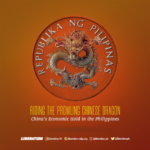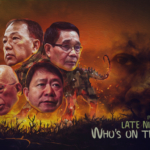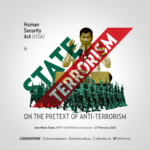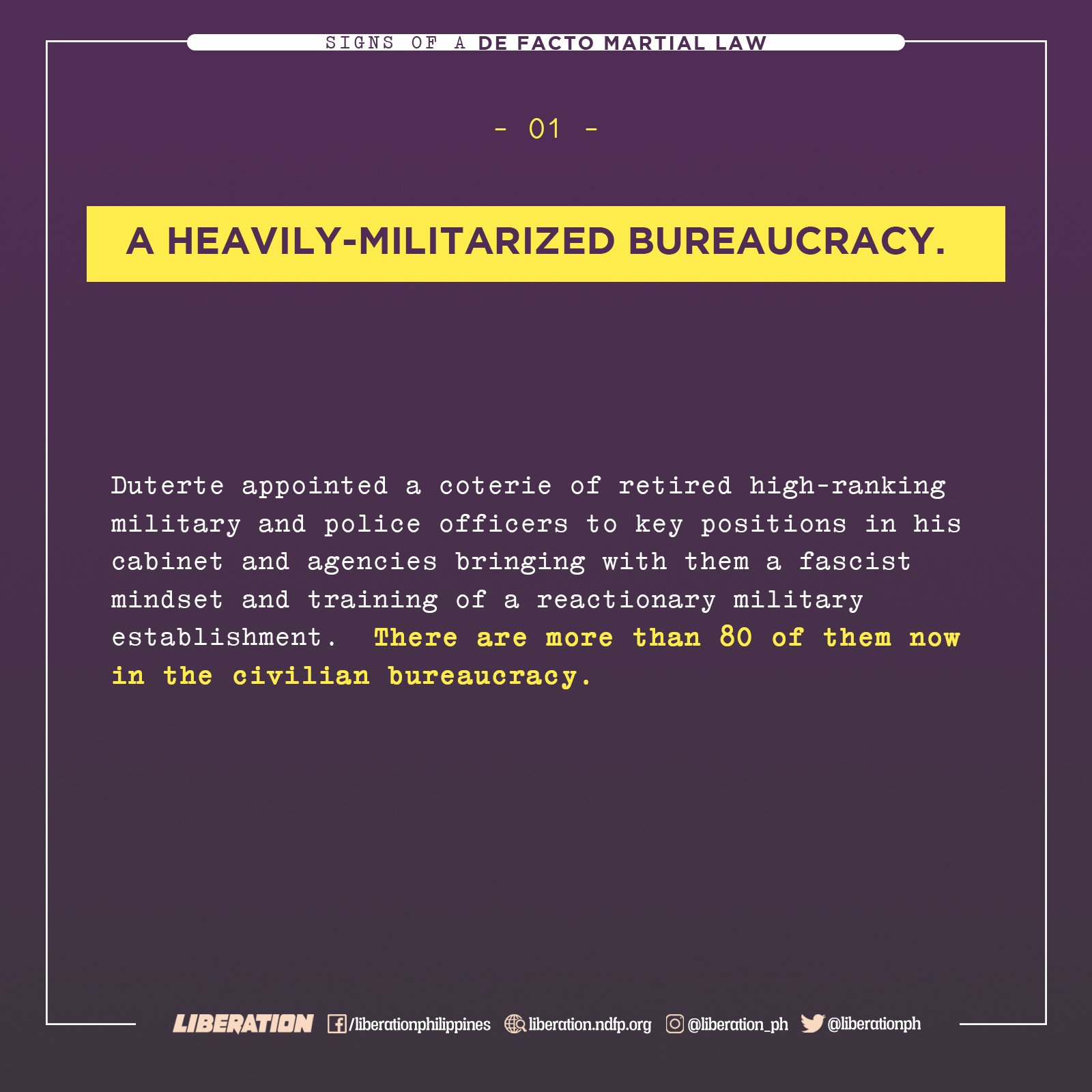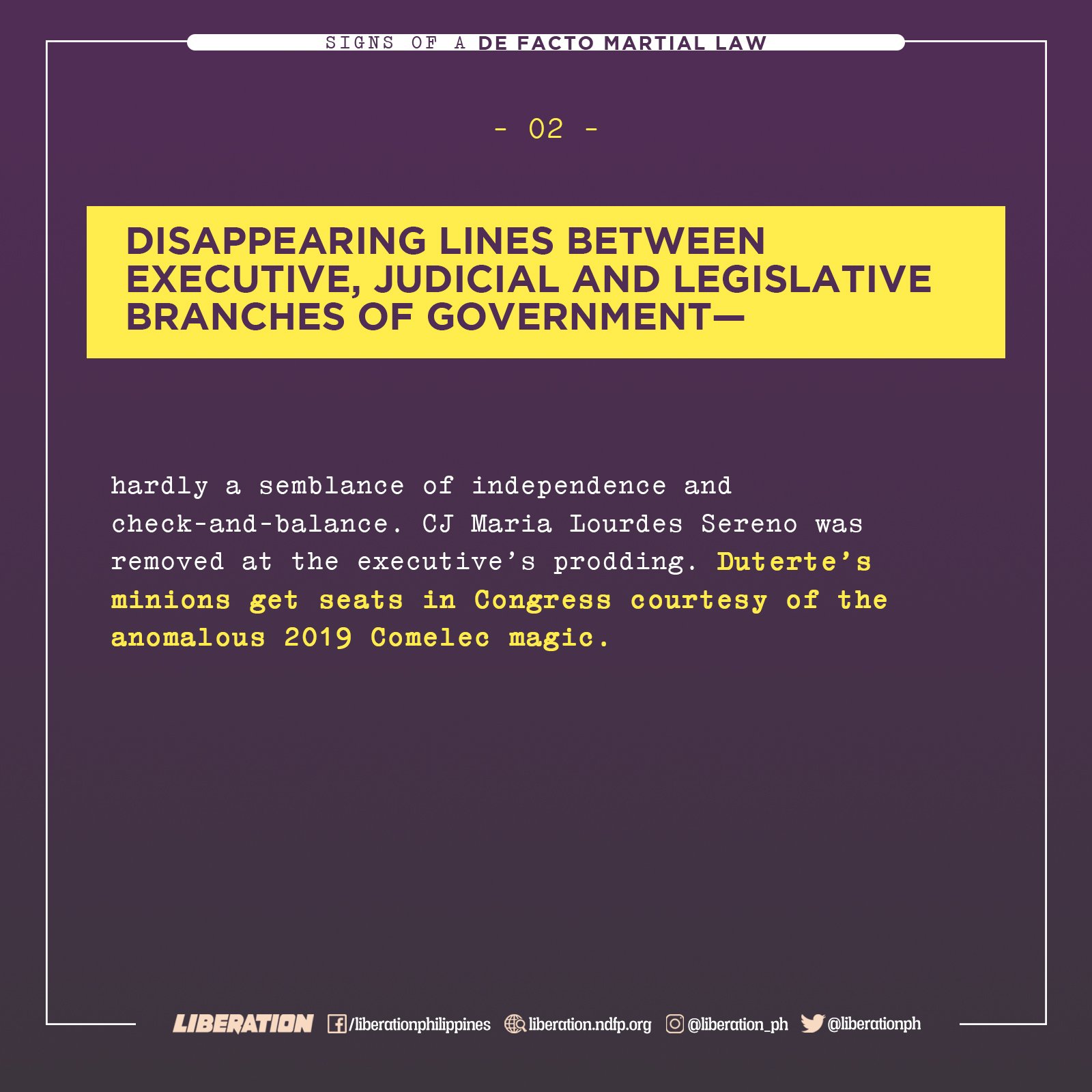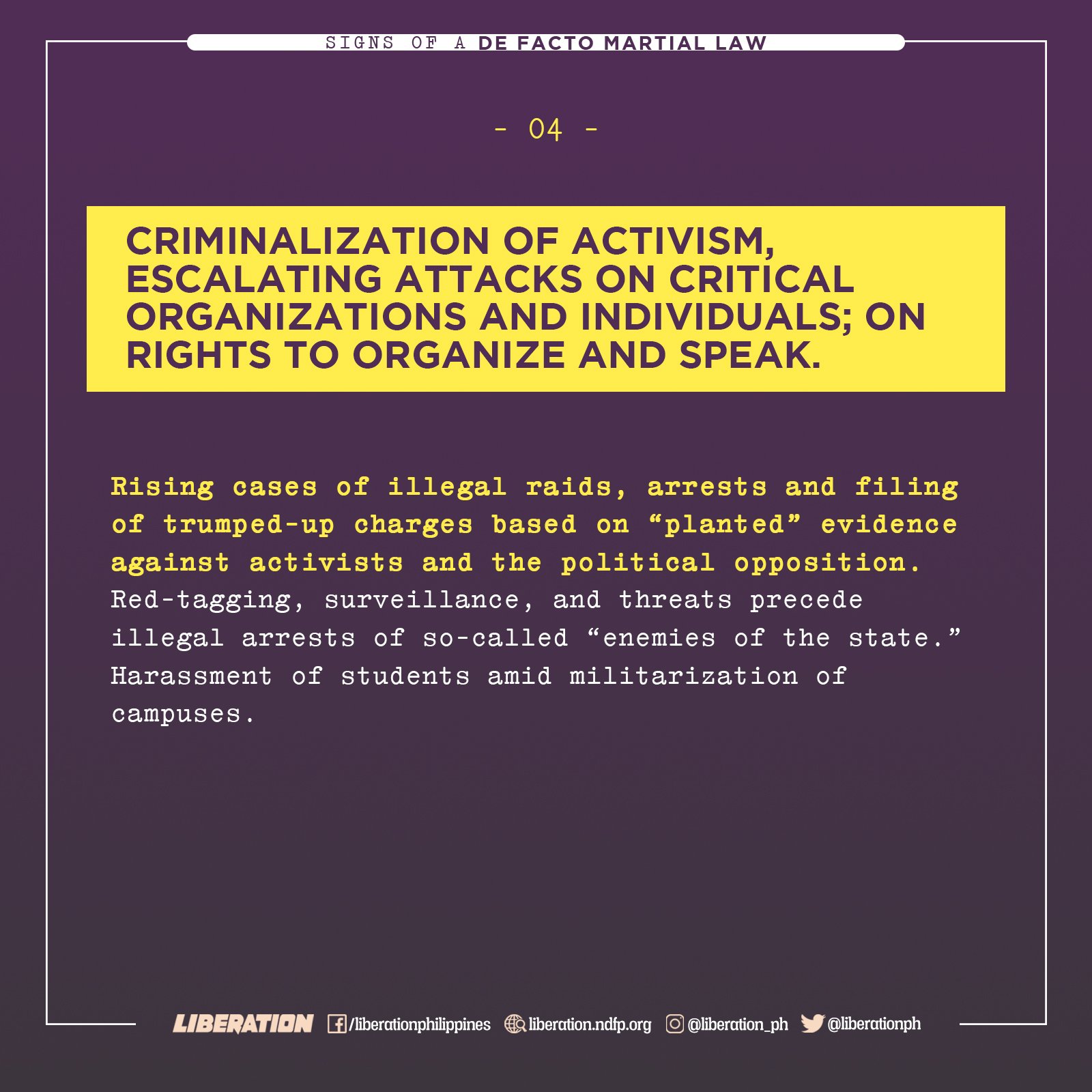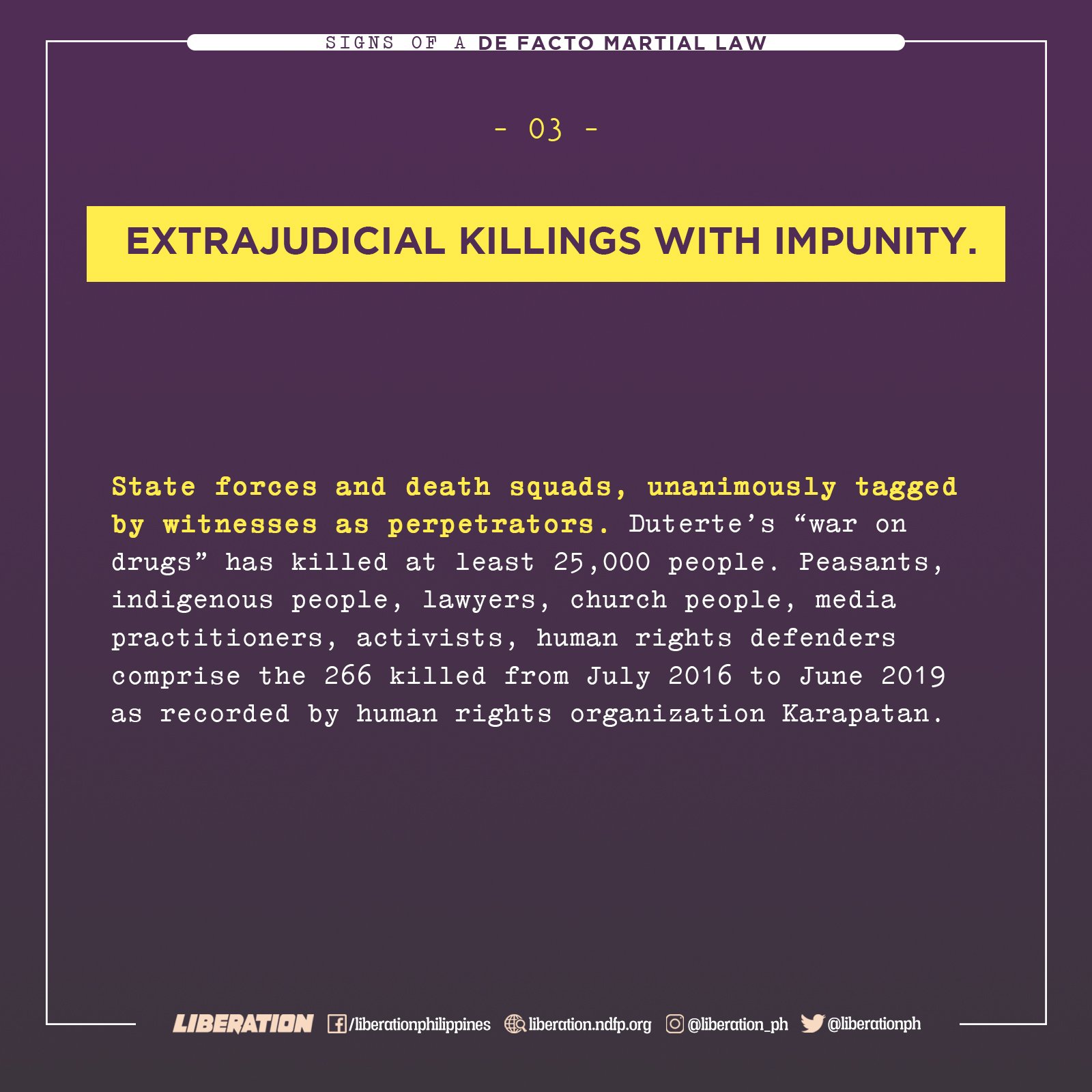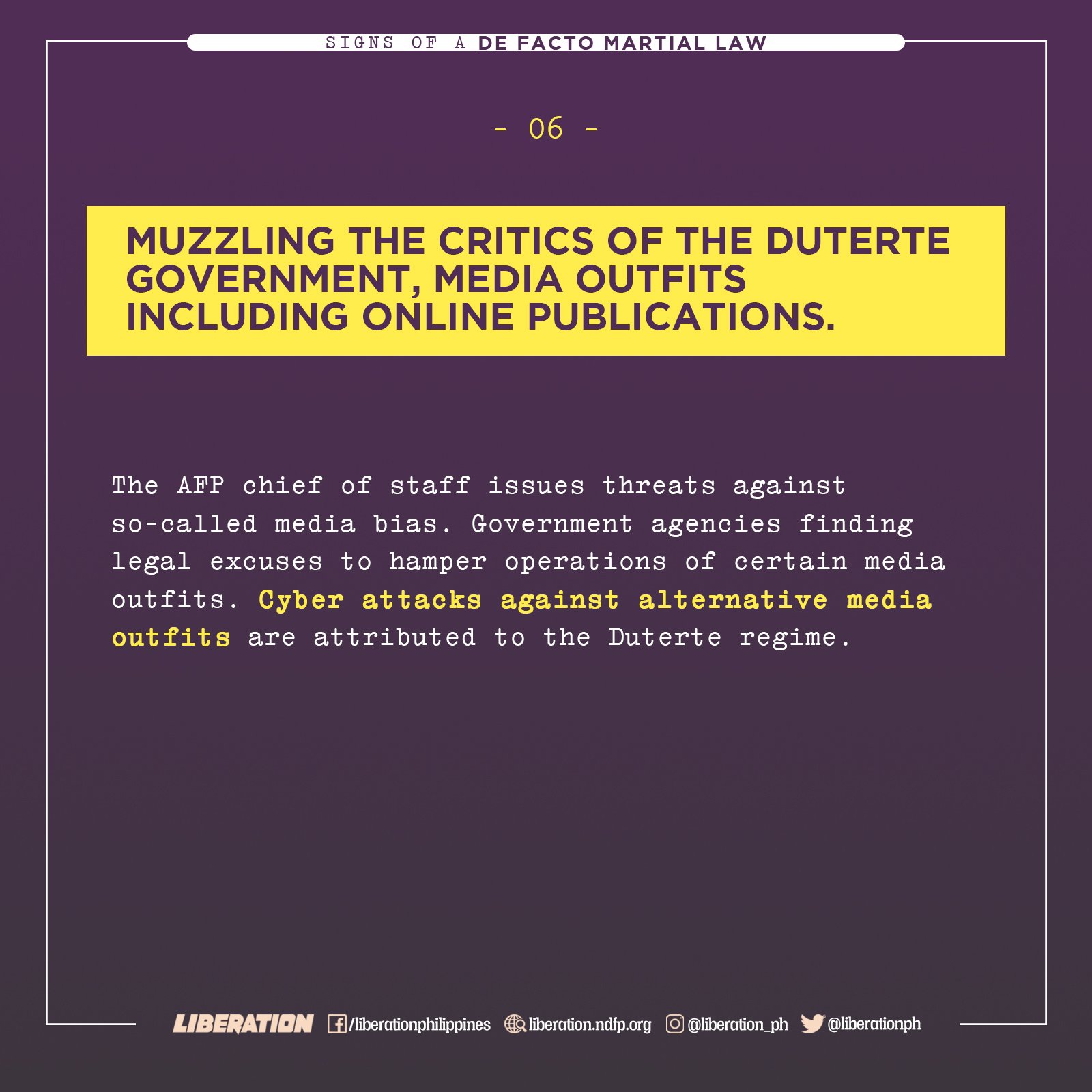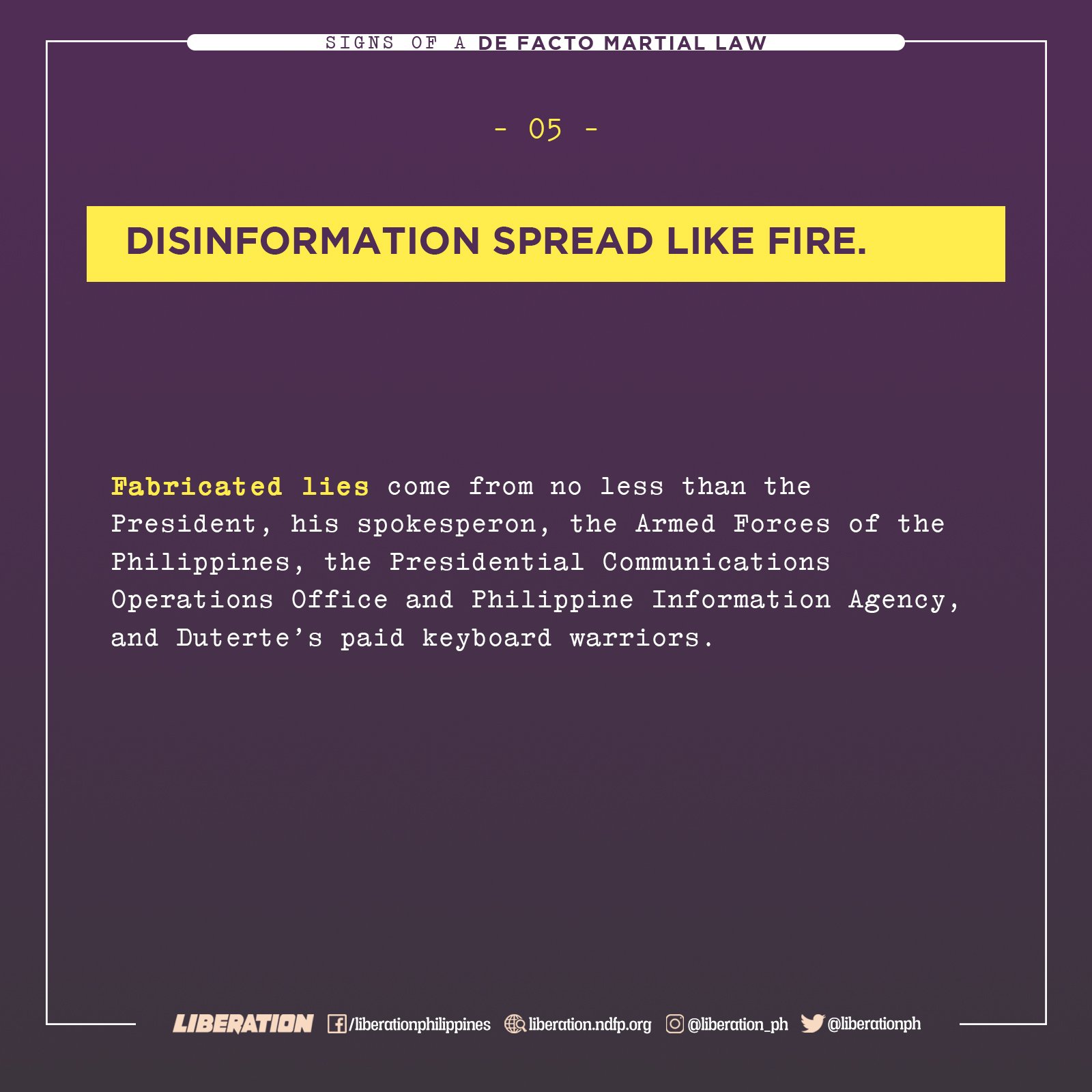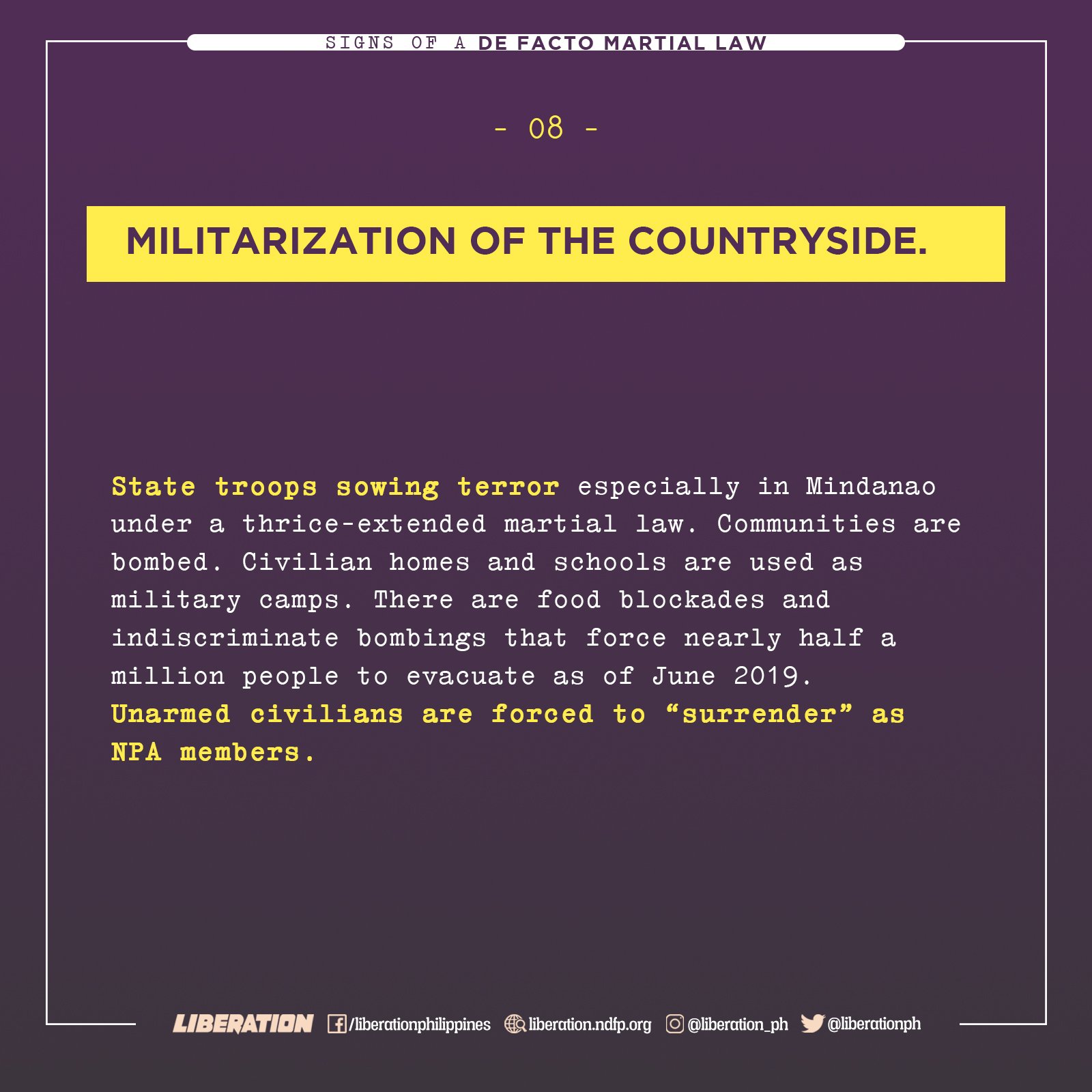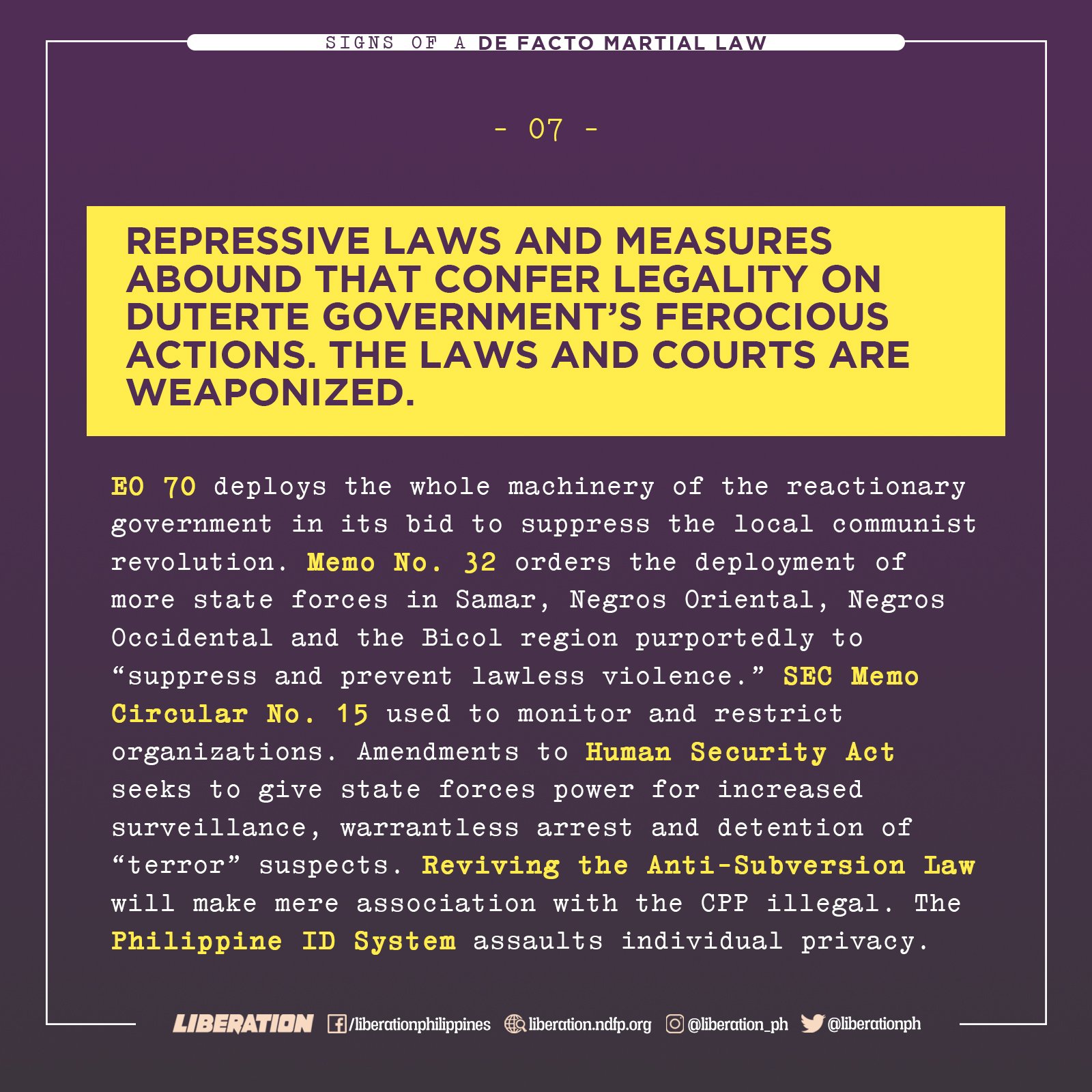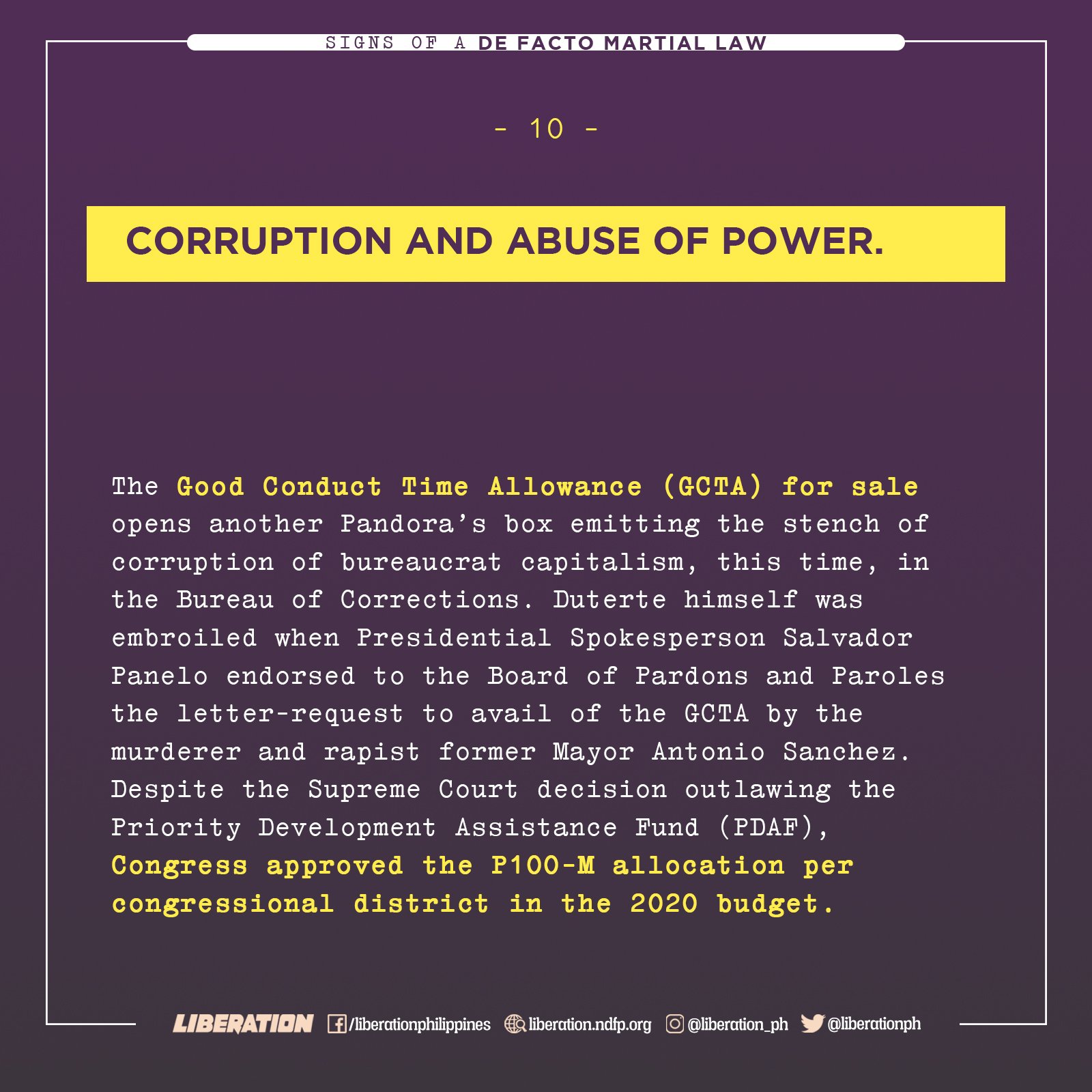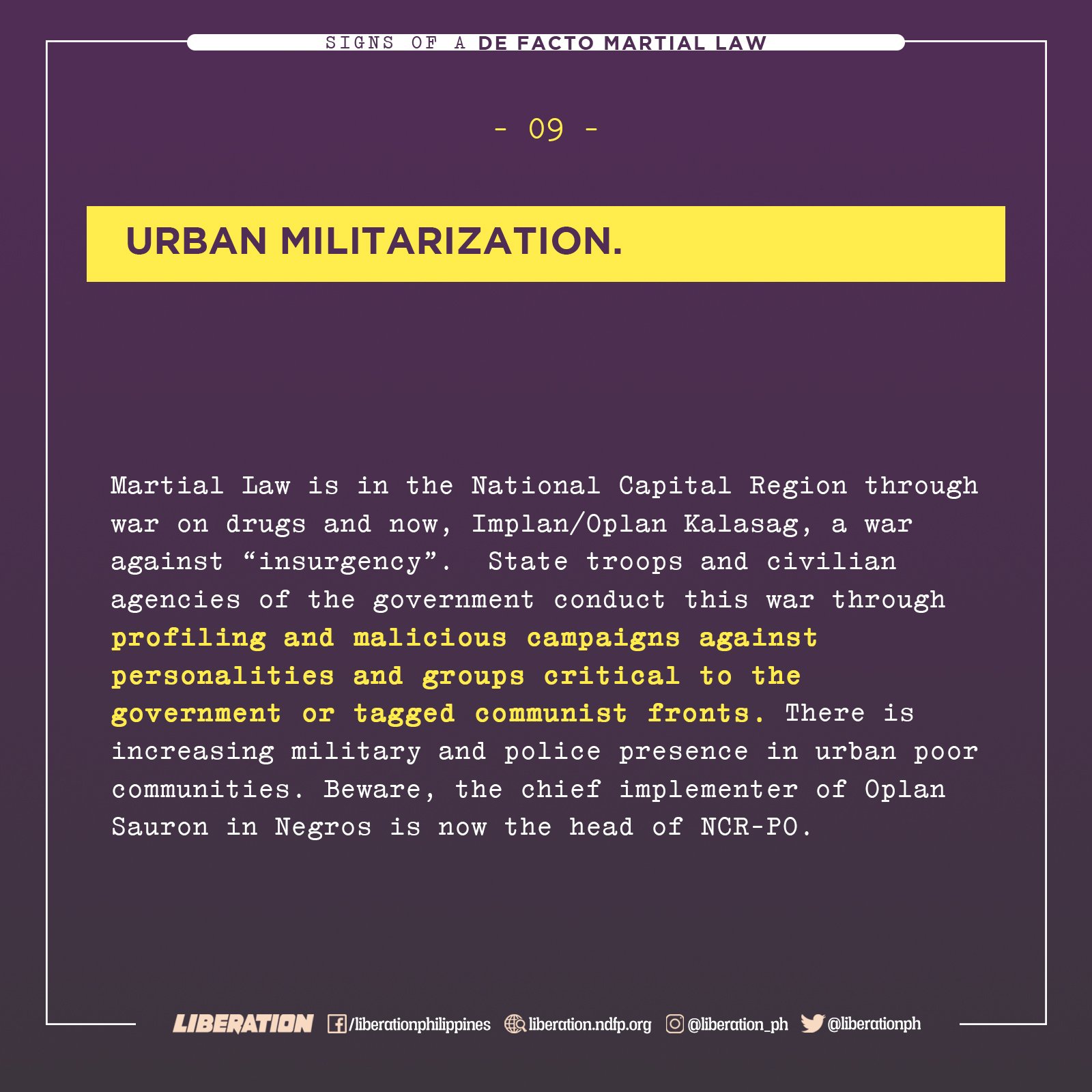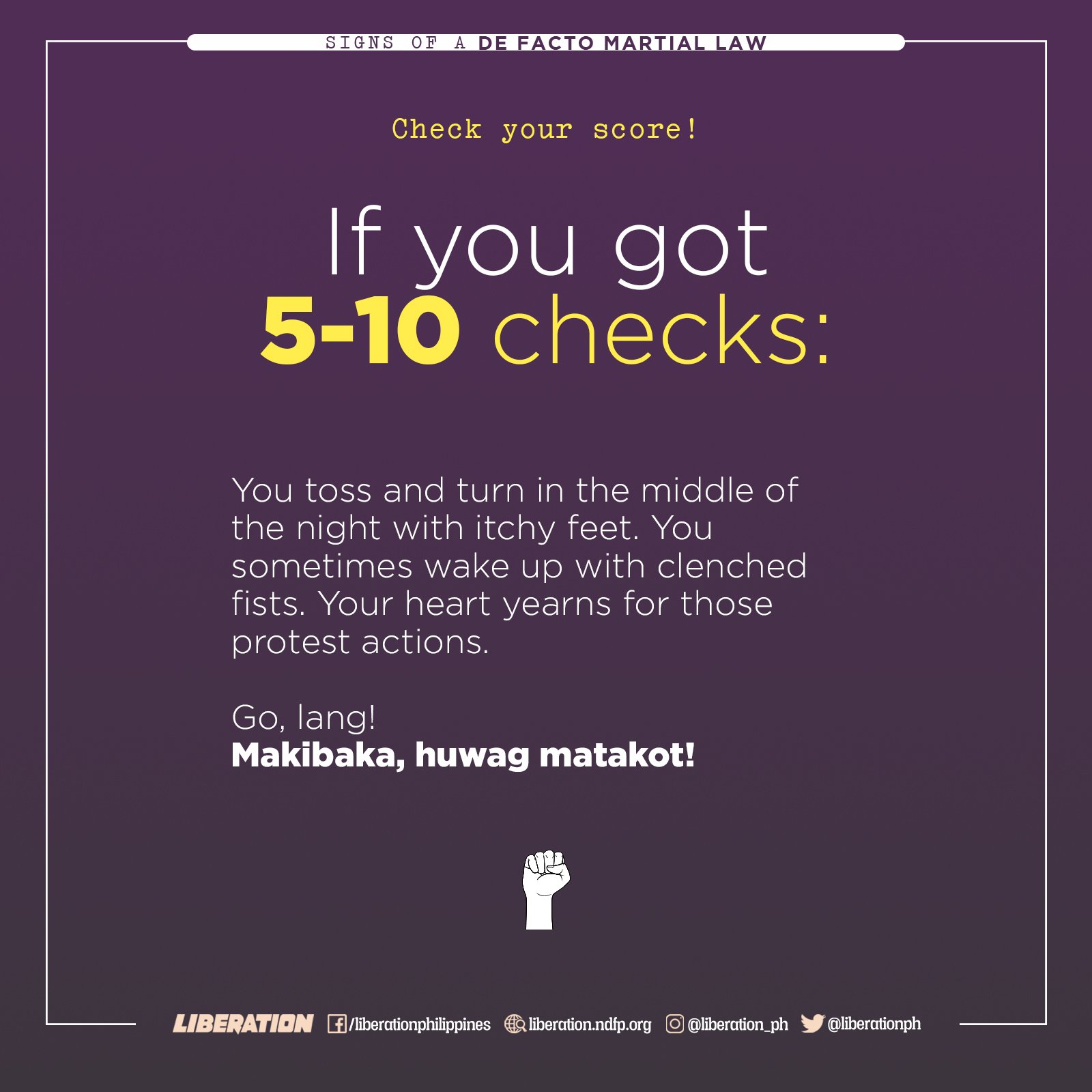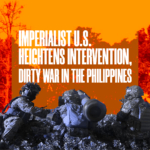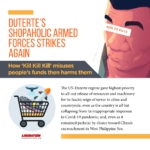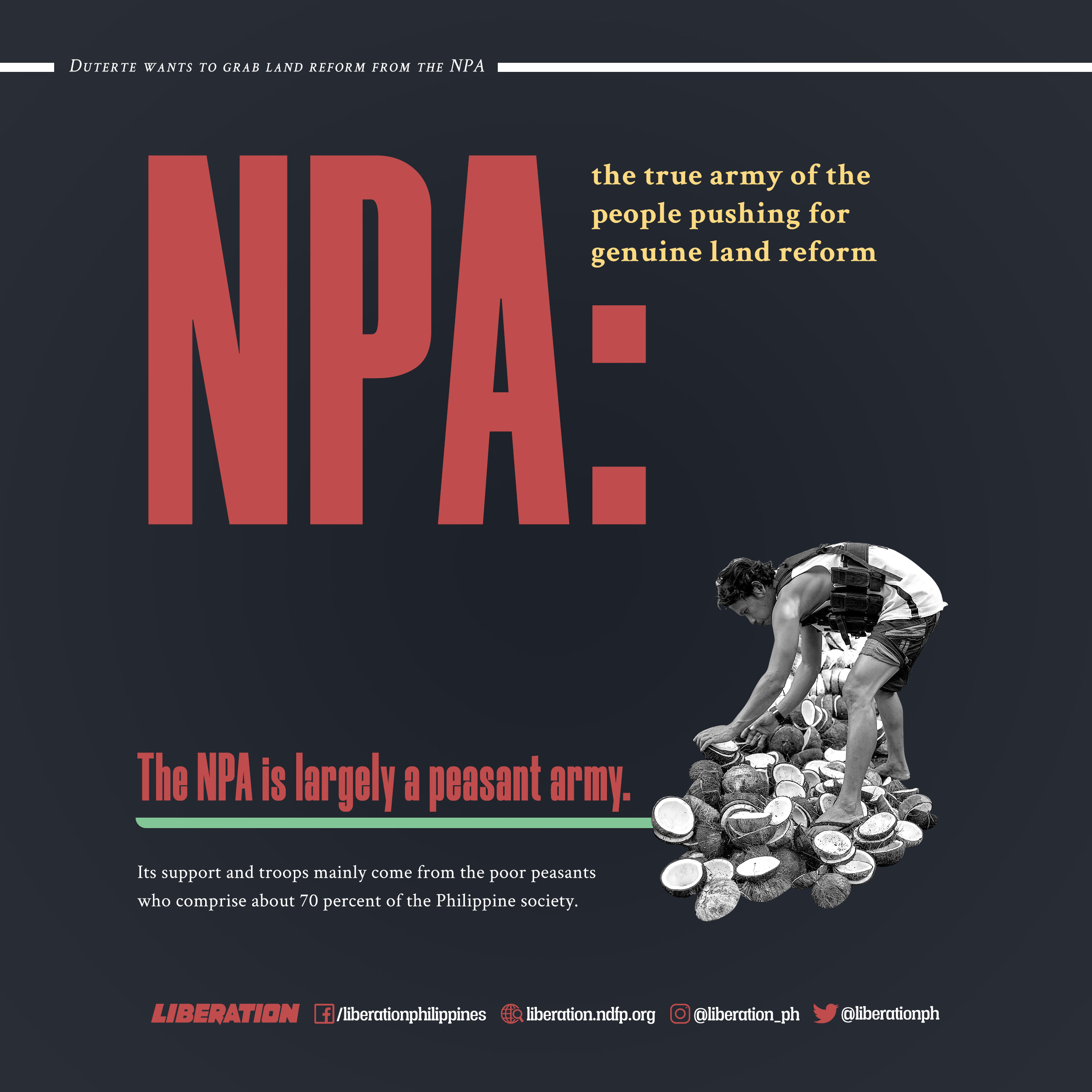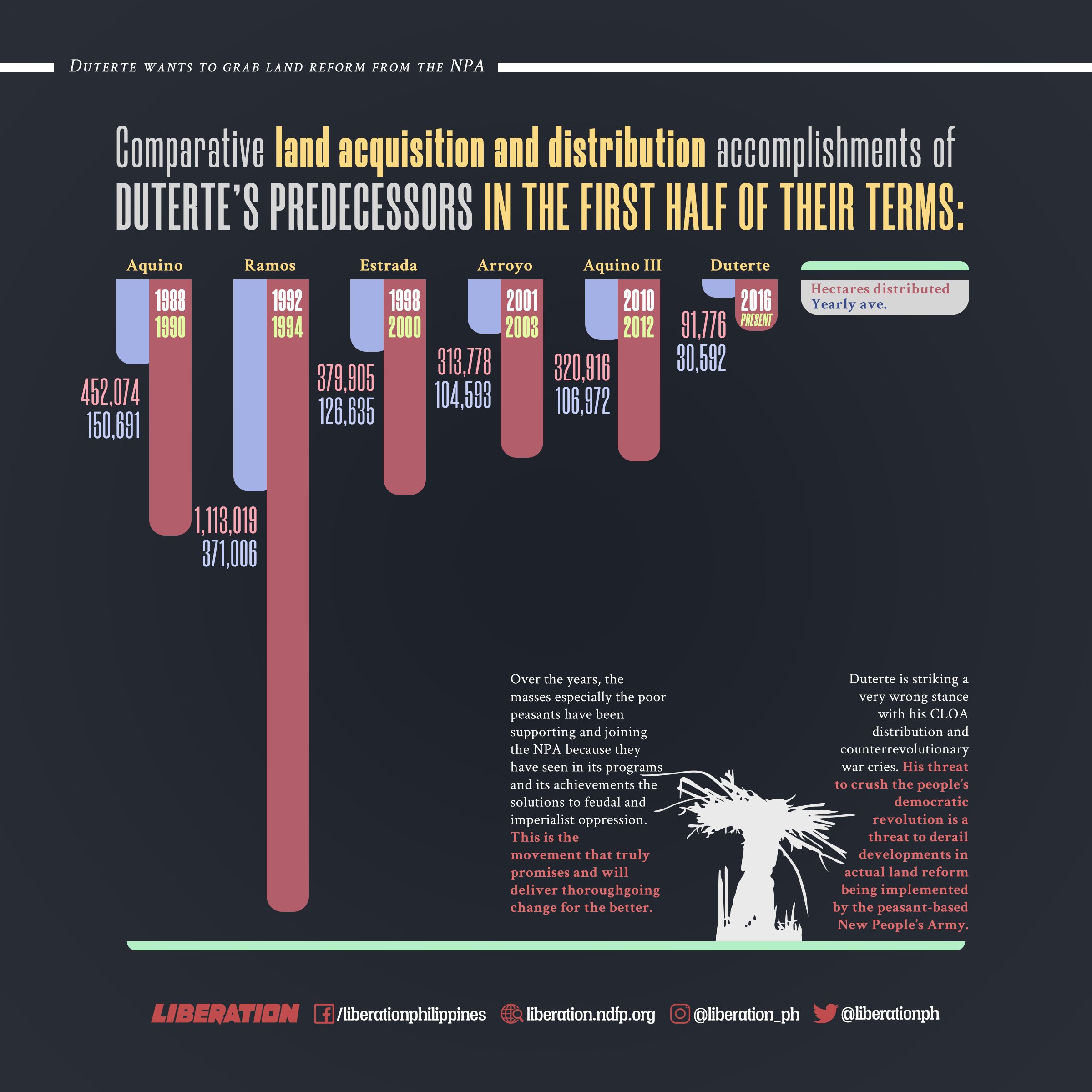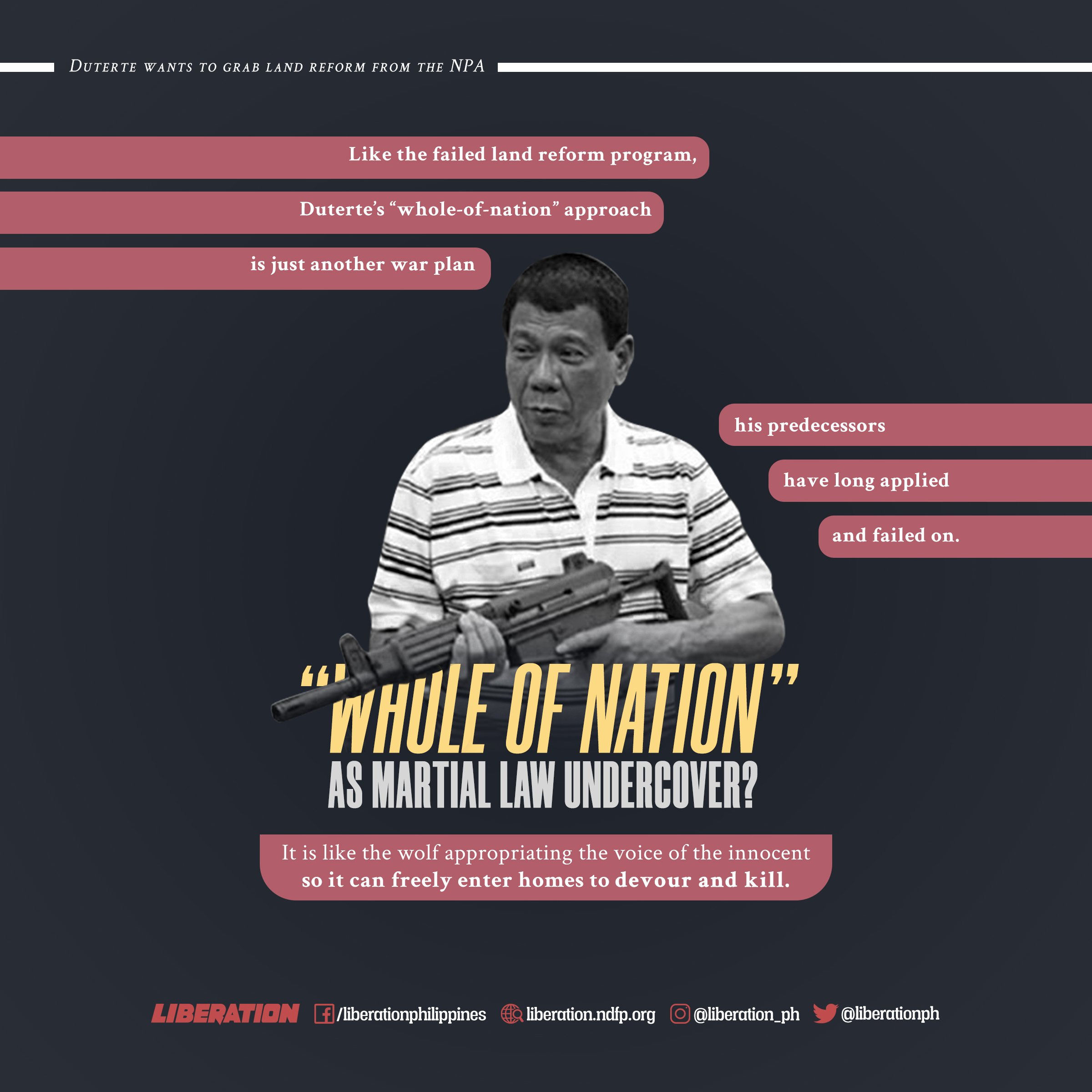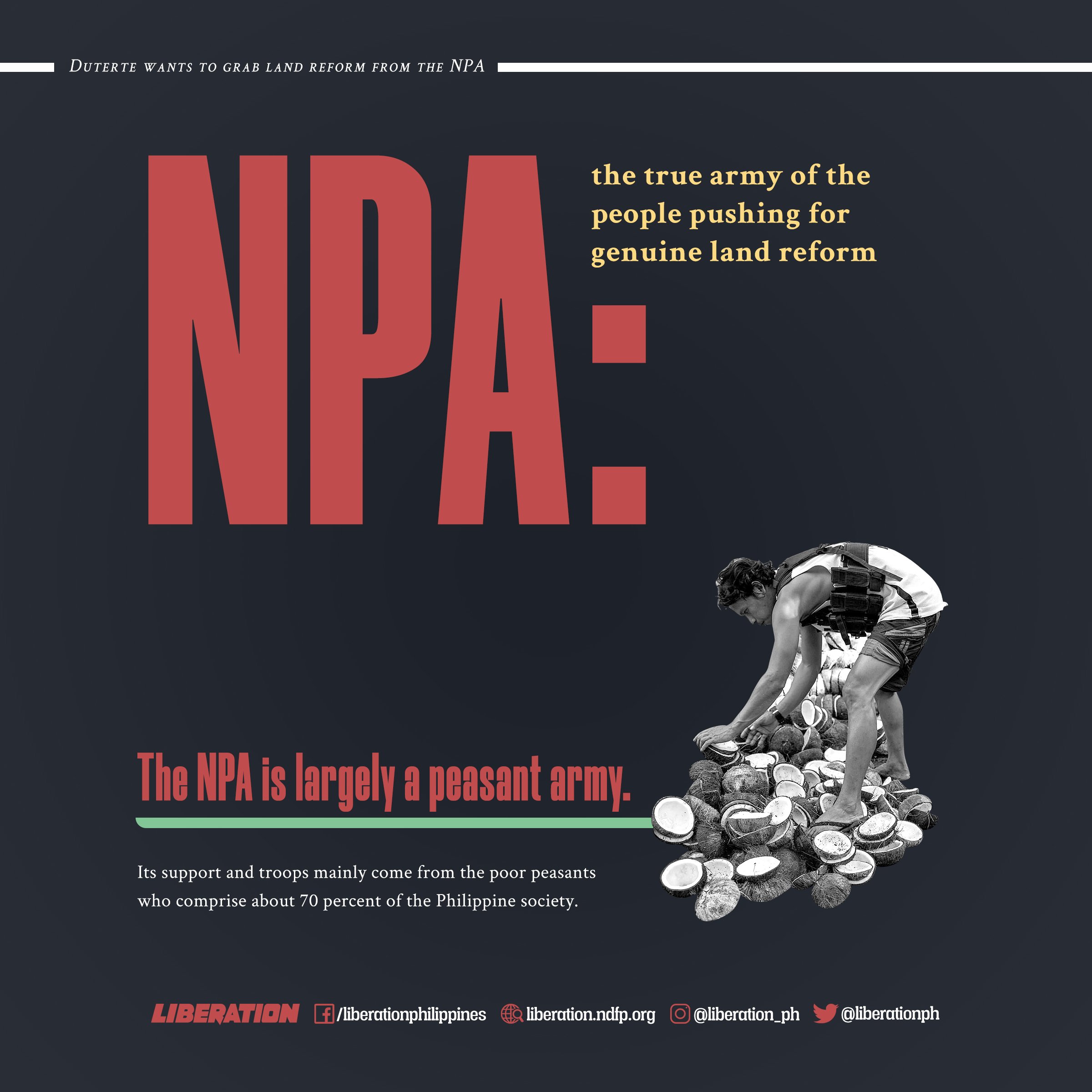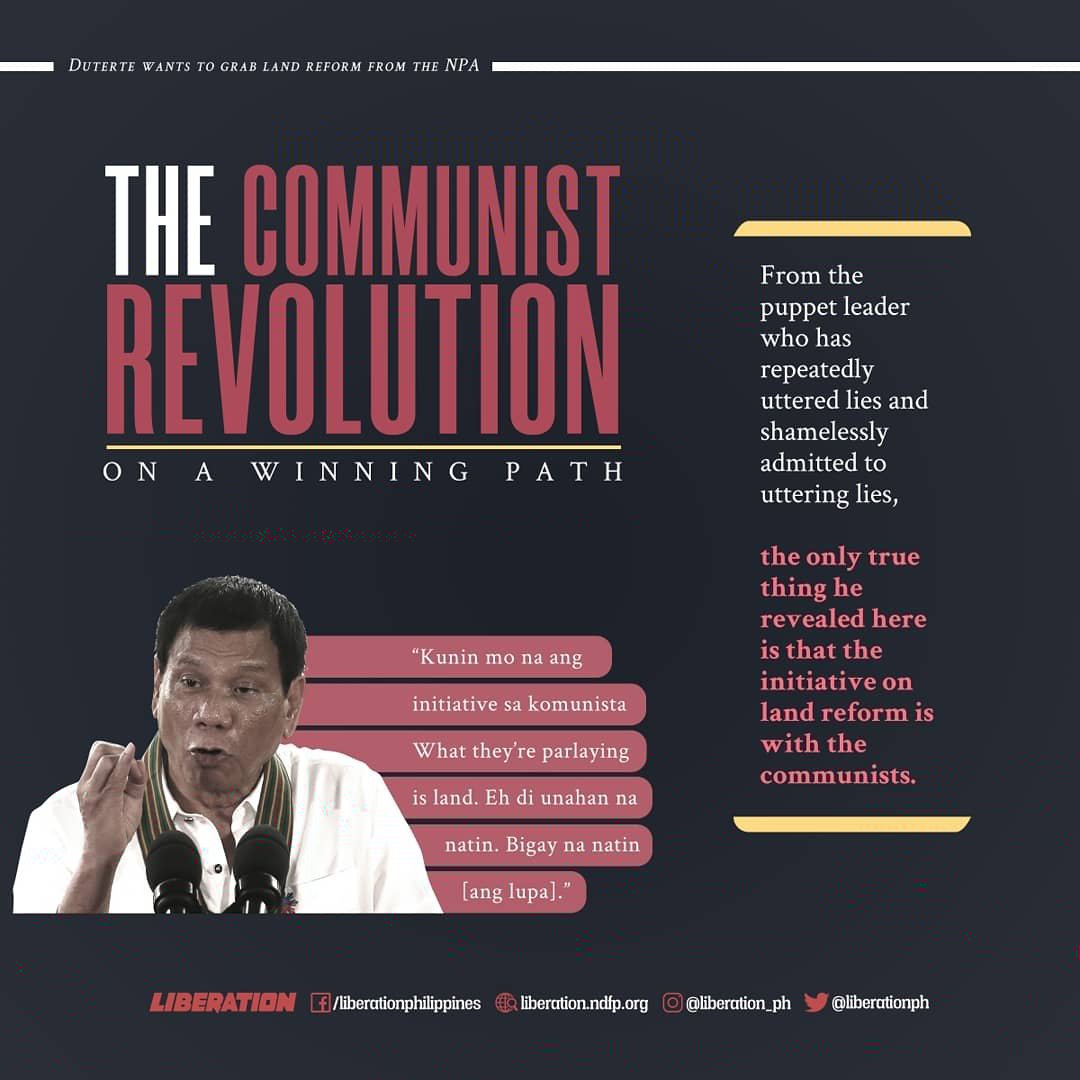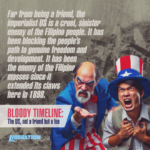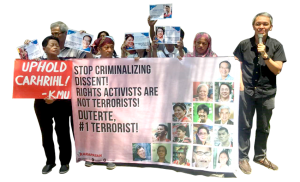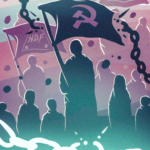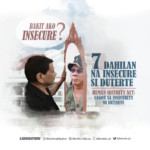7 DAHILAN NA INSECURE SI DUTERTE Human Security Act: Sagot sa insecurity ni Duterte
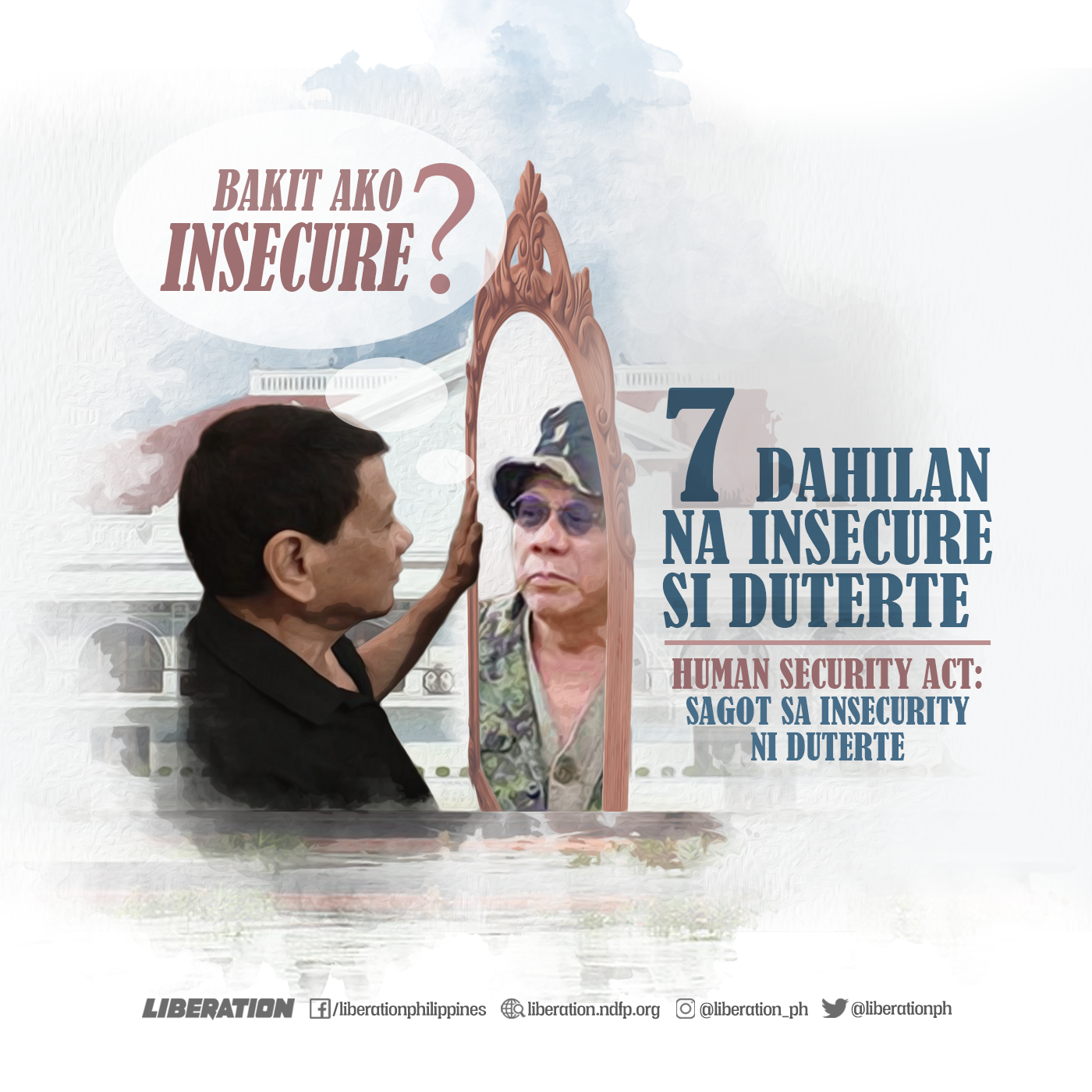
He talks like a strongman. His generals claim they are winning the war against the people and their revolutionary vanguard, the CPP. Yet, the Duterte regime reveals its deep insecurity as it now seeks more draconian measures. Why add new fangs to the “Human Security Act” if indeed they are strong and winning? Why add more violations of international humanitarian laws to their record? Why court further international and local condemnation in legalizing their terror acts against the people?
The Duterte government’s populist press releases contradict its actions. Knowing it can no longer hide its constant betrayal of the people’s interests, it quakes in fear of the people’s mounting anger. To preempt ouster moves and revolutionary upheavals, it wants to blanket the country under a more severe “Human Security Act” or “Anti-Terror Law.”
It wants to criminalize the mere thinking, supporting or linking of moves for truth-telling, helping one another and taking positive steps for reforms and revolutionary change. It seeks to give more power to state forces that already stink of hulidap, ‘nanlaban’ overkill, kotong, fake drug bust, fake surrenders, fake encounters, and fake victories.
The US-Duterte regime’s ‘popularity’ and ‘supermajority’ are toxic bubbles puffed up by fake news, election rigging, corruption, and state coercion. The more this regime feels insecure, the more it resorts to tyranny. But the more tyrannical it gets, the more it reveals that it is weakening. In the face of this government’s intensifying cruelty, the people must persevere in seeking and supporting revolutionary change.
The following are some of the inescapable reasons why the US-Duterte regime is getting more insecure and weak:
1. FAILING DE-FACTO MARTIAL LAW (AKA ‘WHOLE-OF-NATION’ APPROACH)
The Duterte regime promised but failed to deliver peace talks and peace agreements with meaningful social and economic reforms. Instead, it unleashed a de-facto martial law by way of the National Task Force to End Local Armed Conflict (NTF-ELCAC). It is spending public funds profligately but earning the people’s ire with its abuses, faked results, forced cooperation of communities, local governments, and government agencies.
2. HATED FOR TOKHANG, EXTRA-JUDICIAL KILLINGS
As Duterte fondly likes to say, his regime excels in ‘kill, kill, kill’ victimizing mostly poor and innocent people.
3. ‘CHANGE IS COMING’ NOT AT ALL
Duterte is reprising, with worse updates, Marcos’ and Macapagal-Arroyo’s debt-driven, corrupt, crony-infested, blatantly favorable to foreign investors economic policies.
4. DUBIOUS POPULARITY AND DIMINISHING SUPPORT BASE
The Duterte regime’s popularity is slipping fast because of his treasonous, plunderous policies. Duterte’s minority votes (39%) are rapidly getting disenchanted by his unfulfilled promises. No substantial wage hike. No end to contractualization. No independent foreign policy. No peace.
5. ‘SUPERMAJORITY’ BASED ON CHEATING, CORRUPTION
The US-Duterte regime excels at freeing plunderers, enacting laws that are bad for the people and the environment. The reason: Thanks to electronically rigged results, the most corrupt and mendacious of politicians can get ‘elected.’ They are expensive to maintain, however. They face the people’s fury, and that of their rival politicians.
6. BY DESIGN, CRIMINALLY NEGLIGENT OF THE PEOPLE
Natural and human-made disasters are showing up the Duterte regime’s criminal prioritization of pork and the military over the people’s welfare and social services.
7. DUAL PUPPETRY
By now it’s obvious Duterte’s “independent foreign policy” is his catch-all lie for taking puppetry to a higher level. He is puppet to not just one but two (US and China) imperialists, making deals with both at the expense of the Filipino people, patrimony, and sovereignty.
The US-Duterte regime’s insecurities won’t be resolved by its push to legalize and enhance its brute cruelty through the Anti-Terror Law. The Filipino people will always thirst for actual social and economic reforms. In collective defense of our people’s enduring aspirations for revolutionary change, we must unite and work to end the US-Duterte regime. Let us put an end to all its useless, bloody schemes to cling to power. ###
#PHstateterror
#JunkTerrorBill
—–
VISIT and FOLLOW
Website: https://liberation.ndfp.info
Facebook: https://fb.com/liberationphilippines
Twitter: https://twitter.com/liberationph
Instagram: https://instagram.com/liberation_ph

